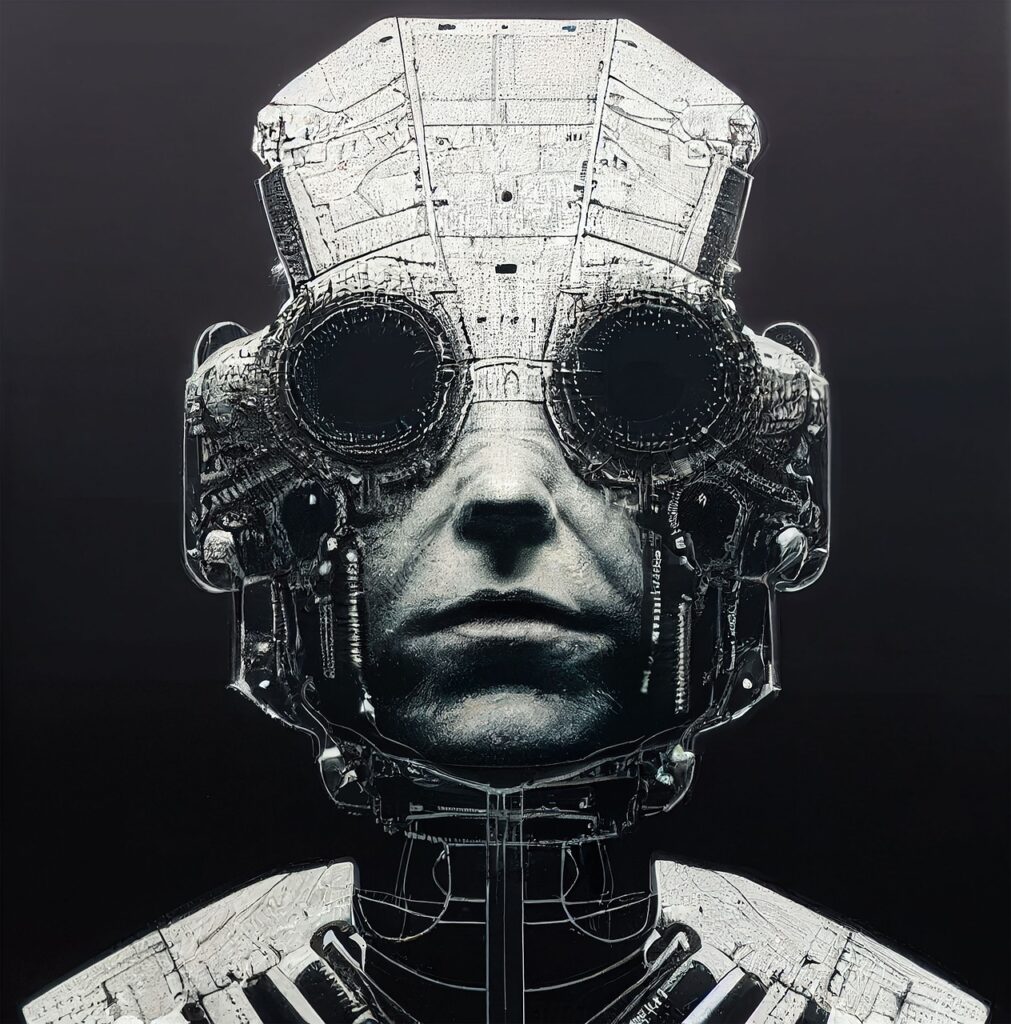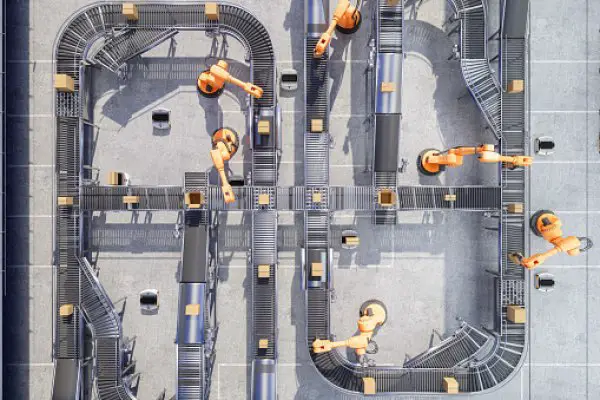Another creative domain impacted by ChatGPT is web designers with the rapid advancements in artificial intelligence, there has been growing concern about the potential impact of ChatGPT on the job market. ChatGPT can understand context, generate human-like responses, and write computer code as a generative AI language model. These capabilities have led to debates on what jobs might be at risk of being replaced by this powerful AI tool.
Various industries are watching the growth of AI technologies like ChatGPT with intrigue and apprehension. While some tasks can be effectively automated, leading to increased efficiency and cost reduction, there is the looming question of how this might affect employees in both technical and non-technical roles. It’s important to assess which positions could be most vulnerable to replacement and the wider implications of AI-driven job displacement on society.
A closer look into the abilities and limitations of ChatGPT helps provide a clearer picture of the jobs at risk, as well as the potential benefits and drawbacks of embracing AI technology in the workplace. By understanding its potential impact on various sectors, individuals and industries can better prepare for the future and seek proactive solutions to minimize the negative consequences of job displacement due to AI advancements.
Fundamental Jobs ChatGPT Can Replace
Customer Service Agents
As AI technology continues to advance, ChatGPT has the potential to automate a significant portion of customer service roles. Chatbots powered by generative AI can handle customer inquiries and complaints more efficiently than human agents, providing quick and accurate responses. This innovation can improve business productivity while reducing costs for companies. However, it’s important to note that AI must be capable of entirely replacing human judgment, and more complex customer service cases might still require human intervention.
Data Entry and Processing
Data entry and processing jobs are highly susceptible to being automated by ChatGPT and similar AI technologies. These tasks typically involve repetitive, structured work, making them well-suited for automation. Workers in these roles might have to adapt to new technology-driven roles, as advancements in artificial intelligence are poised to impact data entry and processing jobs significantly.
Writers and Authors
The role of writers and authors is not immune to the impact of AI. With ChatGPT’s capability to generate written content, there’s a growing concern over the potential erosion of writing jobs. AI-generated content can be particularly suited for writing tasks that demand fast turnaround times, such as advertising and marketing copy or science articles. Despite ChatGPT’s ability to create unique content, the human touch and creative flair remain important, especially in fiction writing, poetry, or essays requiring a deeper understanding of human emotions and experience.
Accountants and Tax Preparers
Accountants and tax preparers can expect significant professional changes due to AI advancements like ChatGPT. OpenAI’s technology can automate number-crunching and data analysis in accounting tasks. AI can perform routine accounting tasks like bookkeeping, financial reporting, or tax preparation more efficiently. However, it is essential to recognize that automation may only partially replace human judgment in more nuanced financial decision-making and strategic planning.
Sectors Affected by ChatGPT
Legal Industry
The legal industry is at risk of being disrupted by ChatGPT, especially for roles like paralegals and legal assistants. AI’s ability to analyze and process large volumes of data can be employed in drafting legal documents, reviewing contracts, and conducting legal research. This development can streamline legal processes and reduce the workload for legal professionals like lawyers.
Journalism And Reporting
Journalism and reporting careers, including reporters and journalists, are also susceptible to changes brought about by ChatGPT. With the technology’s capability to produce high-quality written content quickly and at scale, news organizations may utilize ChatGPT to create news articles or stories that can be tailored to specific audiences. While this innovation could reduce costs, it may pave the way for a decline in traditional journalism roles.
Advertising And Marketing
The advertising and marketing sectors are not immune to the effects of ChatGPT, with roles such as public relations specialists and creative content creators being impacted. ChatGPT can generate unique compositions for ad campaigns, slogans, and marketing materials, assisting businesses in reaching their target audience more efficiently. However, reliance on AI for creative content generation could lead to job displacement in the industry.
Education
Although ChatGPT may not entirely replace teachers, their roles could be significantly transformed. AI language models can be employed to develop personalized educational content, conduct assessments, and provide additional resources to students. This can ultimately lead to improved teaching methodologies, greater accessibility to knowledge, and more efficient ways of learning. Nevertheless, it is important to recognize teachers’ ongoing need for human interaction, guidance, and emotional support, which can only partially be substituted by AI technologies like ChatGPT.
Creative Jobs Affected By ChatGPT
Poets And Lyricists
ChatGPT’s advanced language processing capabilities allow it to generate content resembling human-written text, making it a potential disruptor in creative fields such as poetry and lyric composition. Poets and lyricists striving to craft unique and dynamic pieces may compete with AI-generated poems and song lyrics that, while lacking a human’s emotional depth, can achieve impressive linguistic complexity and coherence.
Web Designers And Developers
d developers. While coding and web development may only sometimes be considered creative jobs, they do require problem-solving skills and the ability to design user-friendly interfaces. ChatGPT’s ability to generate code based on specified inputs could automate several tasks and streamline the workflow of web designers and developers, ultimately reducing the demand for their expertise. Professionals in these fields must diversify their skill sets and adapt to this emerging technology to remain competitive.
Graphic Designers
Graphic designers are also not immune to the impact of ChatGPT and AI in their profession. With advancements in generative AI, there is potential for the automation of various design processes, such as creating logos, banners, and other visual materials. This tech evolution could decrease demand for graphic designers as companies seek cost-effective and quick alternatives offered by AI-powered tools. However, it is still crucial to recognize the value of the human touch in the creative process, which remains hard to replicate by machines despite their growing capabilities.
Limitations And Challenges In Automation
Human Judgment And Emotional Intelligence
Despite its impressive capabilities, ChatGPT cannot replace jobs that require human judgment and emotional intelligence. While generative AI tools like GPT-4 might improve on these aspects, human empathy is crucial in roles such as therapists, social workers, and nurses. Moreover, understanding cultural nuances and making ethical choices is beyond the scope of current AI technologies. Professionals navigating complex social situations or negotiating deals rely on human intuition and interpersonal skills, which AI systems have yet to replicate.
Misinformation And Ethics
Another challenge associated with AI-powered tools, such as ChatGPT, is their potential to spread misinformation. Since generative AI models are trained on vast amounts of data, they might produce responses that include false information or propagate biased beliefs. Additionally, relying on AI tools for job replacement raises ethical concerns about surveillance, manipulation, and control. It’s essential to balance embracing AI-driven automation and preserving human insights, empathy, and ethical decision-making in the workforce.
Potential Opportunities And Growth
New Job Creation
As ChatGPT and other AI technologies continue to evolve, there is potential for job displacement in some sectors. However, it is essential to recognize that AI advancements can also lead to new job opportunities. For example, AI developers and data scientists will see increased demand, enabling businesses to leverage these cutting-edge technologies effectively. Furthermore, as AI takes over repetitive tasks, the workforce can focus on more creative, strategic, and interpersonal roles.
Education And Skill Training
As AI transforms the job market, education and training systems must adapt to equip individuals with relevant skills. Sam Altman, a renowned entrepreneur, and AI expert, emphasizes the importance of upskilling in data analysis, digital marketing, and AI ethics. By fostering a reskilling and lifelong learning culture, the workforce can stay competitive, benefiting employees and businesses.
Economic Impact
Integrating AI technologies like ChatGPT can lead to economic growth by automating tasks, streamlining processes, and enhancing productivity across various industries. As AI technology improves efficiencies, businesses can achieve increased profits, enabling them to invest in further development and expansion. This growth cycle positively impacts the economy, driving job creation and innovation.
Concussion
As we’ve delved into which jobs ChatGPT can replace and analyzed the shifting dynamics of careers in the age of automation, it is evident that AI-powered chatbots like ChatGPT have the potential to impact various professions significantly. While there is widespread concern about job displacement, it is important to approach this issue with a balanced perspective.
ChatGPT’s capabilities are most suited for tasks that involve information retrieval, customer support, and content generation. Jobs such as customer service representatives, data entry operators, and even some aspects of content writing may face automation in the future. However, it’s crucial to note that automation doesn’t necessarily equate to complete replacement. Instead, it often leads to job transformation, where certain tasks are automated while others require human intervention.
The shift towards automation also presents new opportunities for career growth and development. As routine and repetitive tasks become automated, professionals can focus on higher-level cognitive tasks, creativity, problem-solving, and emotional intelligence—skills that are difficult for AI to replicate. Embracing lifelong learning and upskilling becomes paramount to adapting to the changing work landscape.



